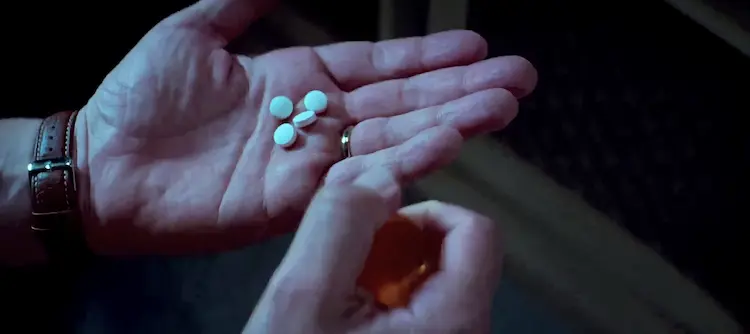In Don DeLillo’s seminal novel “White Noise,” the mysterious Dylar medication is a central plot device and a symbol of modern anxieties. Understanding Dylar requires a multifaceted exploration encompassing its pharmacological properties, narrative function within the novel, and broader societal implications.
Understanding Dylar Medication
What is Dylar?
Dylar, also known by its generic name Paraldehyde, is a psychoactive medication primarily used in the treatment of anxiety disorders and existential dread. Initially developed in the mid-20th century, Dylar has garnered attention for its unique pharmacological profile and complex interplay with the human psyche.
What is Dylar drug used for?
Dylar is prescribed for a range of medical conditions, including generalized anxiety disorder, panic disorder, and acute episodes of existential crisis. Its calming effects on the central nervous system make it particularly effective in managing symptoms of distress and unease.
Mechanism of Action
Dylar exerts its therapeutic effects primarily by interacting with the gamma-aminobutyric acid (GABA) neurotransmitter system. By enhancing GABAergic neurotransmission, Dylar promotes relaxation, reduces anxiety, and mitigates the existential angst experienced by some individuals.
Disclaimer: It's important to note that Dylar, as depicted in Don DeLillo's novel "White Noise," is a fictional creation. While the medication is a central plot device within the narrative, it does not exist. Nonetheless, exploring the concept of Dylar offers valuable insights into the themes of anxiety, existential dread, and the pursuit of emotional stability portrayed in the novel.
Exploring Dylar Drug in White Noise
Context within the Novel
In “White Noise,” Dylar symbolizes the quest for emotional numbness and the desire to escape the overwhelming complexities of modern life. Its introduction catalyzes events that force the characters to confront their deepest fears and insecurities.
Characters and Dylar in Netflix Movie
Characters such as Jack Gladney, Babette, and Murray grapple with the existential implications of Dylar, using it to cope with their existential anxieties. Their interactions with the medication serve as a lens through which DeLillo explores themes of identity, mortality, and the commodification of human experience.

Effects and Side Effects of Dylar Medication
Positive Effects of Dylar
Dylar’s primary benefit lies in its ability to provide temporary relief from debilitating anxiety and existential dread. Many patients report feeling a sense of calm and tranquillity after taking Dylar, allowing them to navigate their daily lives with greater ease.
Potential Side Effects
Like any medication, Dylar carries potential risks and side effects. Common side effects may include drowsiness, dizziness, nausea, and headache. In rare cases, Dylar has been associated with more serious adverse reactions, including respiratory depression and paradoxical reactions.
Public Perception and Controversies
Cultural Reception of Dylar
The portrayal of Dylar in popular media and literature has contributed to its mystique and cultural significance. Films, television shows, and novels often depict Dylar as a symbol of existential ennui and societal malaise, perpetuating its allure as a panacea for modern anxieties.
Ethical and Moral Debates
The ethical implications of Dylar’s use extend beyond the realm of fiction, raising questions about the medicalization of existential distress and the commodification of mental health.
Debates surrounding patient autonomy, informed consent, and the pharmaceutical industry’s influence on prescribing practices continue to shape public discourse on Dylar and similar medications.

Research and Future Directions
Ongoing Studies on Dylar
Despite its long history, research on Dylar remains ongoing, with scientists exploring new applications and formulations of the medication.
Advances in pharmacology and neuroscience hold promise for the development of more targeted and effective treatments for anxiety and existential angst.
Ethical Considerations in Research
As research on Dylar progresses, ethical considerations must remain paramount. Protecting patient rights, ensuring informed consent, and upholding rigorous scientific standards are essential for advancing pharmacological knowledge and therapeutic interventions.
FAQs on does Dylar exist
Is Dylar a real medication?
Dylar, as depicted in Don DeLillo’s novel “White Noise,” is a fictional creation and does not exist as a real medication.
What medicine is Baba taking in White Noise?
In the novel, Babette, one of the characters, takes a medication called Dylar to alleviate her fear of death.
Conclusion
Dylar medication occupies a unique and intriguing space in literature and medicine. Its portrayal in “White Noise” is a poignant commentary on the human condition, while its therapeutic potential offers hope for those grappling with anxiety and existential uncertainty.
As we continue to unravel the mysteries of Dylar, we must approach its use with caution, compassion, and a commitment to ethical integrity.
